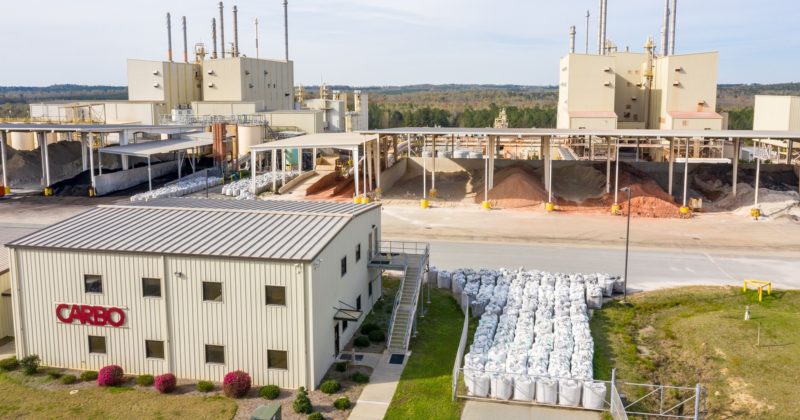CARBO Ceramics, an oilfield services company heavily indebted to the Wilks brothers, prominent donors in Texas politics, declared bankruptcy in a court in Houston over the weekend.
CARBO’s bankruptcy is one of many that could hit the energy sector in the weeks ahead. Faced with oil prices as low as about $20 a barrel, Texas drillers are shutting down or calling off new drilling.
That’s taken a toll on CARBO, which sells ceramic drilling beads, frac sand, and other equipment and supplies used in fracking. From 2014 to 2019, the company’s total revenue from base ceramic media, its main product, fell from approximately $530 million to $34 million.
According to court filings, the company owes $33 million to Wilks Brothers LLC and $32 million to Equify Financial, another company founded by the Wilks brothers.
CARBO is seeking court approval for a debt-to-equity swap that will erase those debts. If the deal is approved by the U.S. Bankruptcy Court, the Wilks brothers will take over CARBO.
Farris and Dan Wilks are Texas oil billionaires that have played a major role in Texas primary campaigns, backing libertarian-leaning candidates in Republican primary campaigns. In 2015 the brothers were described by Reuters as “the largest political donor in America” after they gave $15 million to the Ted Cruz presidential campaign.
They donated substantially in the 2018 GOP primary cycle, but played a less prominent role in the 2020 primary season, as fewer GOP incumbents faced challengers. However, a member of the Wilks’ own family, Farris Wilks’ son-in-law Jon Francis, garnered the most votes in a recent Texas House primary race, putting him through to a runoff election.
According to court filings and a press release from CARBO, the Wilks brothers have offered to provide the company a $15 million debtor-in-possession loan so that it can stay open pending completion of the deal.
In a statement, Matt Wilks for Wilks Brothers LLC commented, “We have long believed in the underlying strength of CARBO’s business, as exemplified by our multi-year relationship with the Company. This transaction will allow us to invest in the future of CARBO as we pursue opportunities to unlock value and support growth.”
CARBO used to be traded on the New York Stock Exchange, but was delisted last December. Headquartered in Texas, CARBO has 33 full-time employees, 7 part-time workers, and 15 independent contractors, according to a presentation to the bankruptcy court.
CARBO has facilities in Houston, Midland, and Decatur in Texas, as well as Windsor, Colorado, and several other locations in the U.S. South and Midwest.
Judge Marvin Isgur is presiding over the case. He’ll get to decide whether the company can escape some of its other long-term obligations as part of its restructuring. Key liabilities for the company are its railcar leases, which it entered into between 2014 and 2016 when demand for its proppant products remained high.
Terms of the leases run through 2022 or 2024, according to the court filings. “As demand for the Company’s proppant products continued to decline into 2017, the railcar leases increasingly became a burdensome obligation,” the company said.
Faced with a severe decline in oil and natural gas prices, drillers began substituting sand for ceramic proppant. They also began substituting locally-sourced sand for higher grades of sand such as those sold by CARBO, cutting into another of the company’s revenue streams.
CARBO has about $56.3 million remaining in lease obligations. It leases approximately 1,400 railcars and only has been able to sublease about 570 of those.
CARBO’s bankruptcy advisers include Vinson & Elkins LLP, Perella Weinberg Partners LP and FTI Consulting Inc.
